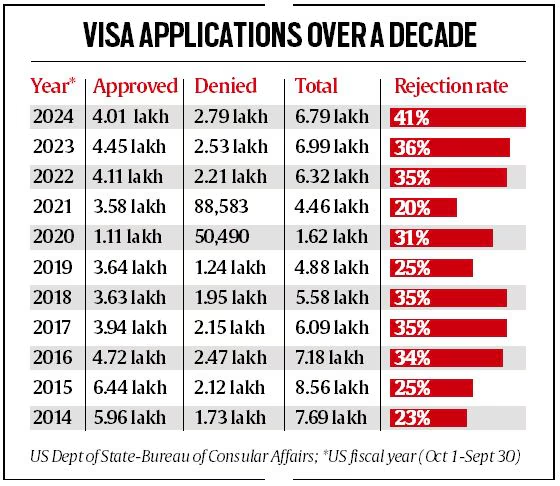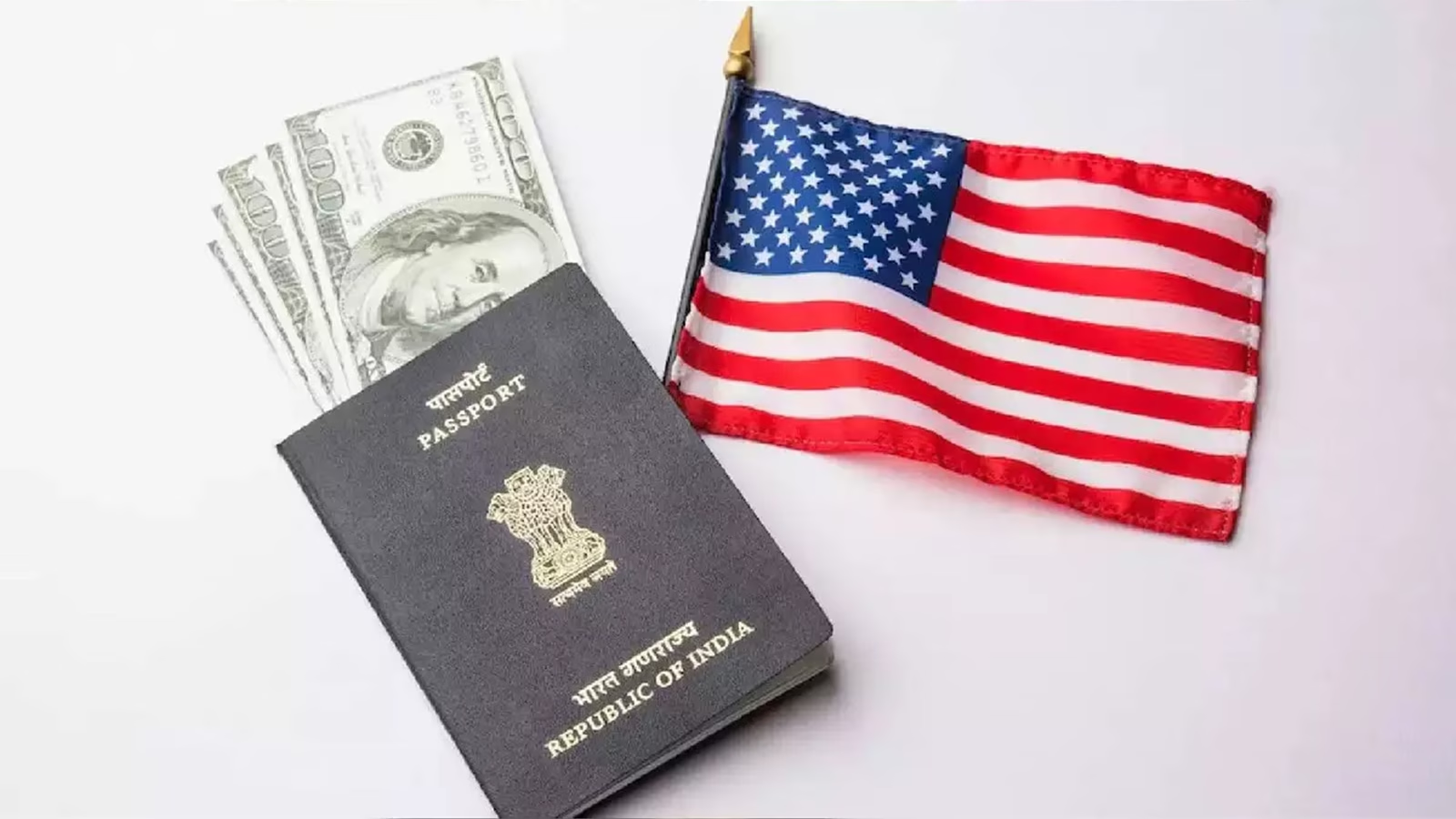
Washington D.C./New Delhi – The United States saw a sharp rise in student visa rejections last fiscal year, with F-1 visa denial rates climbing to a 10-year high. According to data analyzed by The Indian Express, 41% of F-1 student visa applications were turned down in 2023-24, nearly double the rejection rate from a decade ago.
In the fiscal year 2023-24 (October 1, 2023 to September 30, 2024), the US received 6.79 lakh F-1 visa applications from students worldwide, rejecting 2.79 lakh of them. This marks a rise from 2022-23, when 2.53 lakh of 6.99 lakh applications (36%) were denied.
Despite the surge in rejections, the total number of applications has been on a fluctuating trend. Applications peaked at 8.56 lakh in 2014-15 but steadily declined, hitting a low of 1.62 lakh in 2019-20 during the Covid-19 pandemic. Since then, applications have rebounded but dipped 3% in 2023-24 compared to the previous year.
The increase in denials comes even as international student interest in the US remains strong. A total of 4.01 lakh F-1 visas were issued in 2023-24, down from 4.45 lakh in 2022-23. The F-1 visa is granted to students enrolled in academic programs at US institutions, while M-1 visas apply to vocational and non-academic programs.
Although the US State Department did not release a country-specific breakdown of visa denials, The Indian Express reported in December 2024 that student visa issuances to Indian nationals dropped by 38% in the first nine months of 2024 compared to the same period in 2023. In January-September 2024, 63,973 Indian students were issued F-1 visas, down from 1.03 lakh during the same period the previous year.
Despite this, Indian students have emerged as the largest international student cohort in the US. The Open Doors 2024 report revealed that India surpassed China in 2023-24, accounting for 29.4% of all international students. The total number of Indian students in the US reached a record 3.31 lakh in 2023-24.
When asked about the rise in rejection rates, a State Department spokesperson cited case-by-case adjudications in accordance with the Immigration and Nationality Act (INA) and applicable regulations. The spokesperson also mentioned a shift in how visa data has been recorded since FY2019, noting that updated methodology may impact comparisons to previous years.
The US is not alone in tightening its policies. In 2024, Canada announced a cap on study permits, reducing intake by 35% compared to 2023, citing strains on housing, healthcare, and public services. Canada has already signaled an additional 10% reduction in study permits for 2025.
The US State Department’s final statistics for FY2024 will be published in its upcoming annual Report of the Visa Office.



